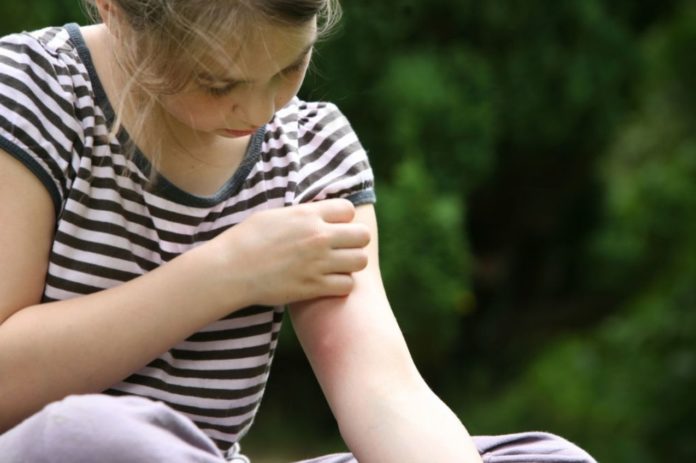Although summer means more time outdoors, it also means more bad bugs – like ticks, flying insects, and mosquitoes.
Unless you catch the culprit it’s hard to recognize what insect decided to make you their lunch.
Usually, most bites or stings are harmless will be mildly itchy and sometimes they can also be a little bit painful, with the area around the bite becoming tender.
- Brief Anger Hampers Blood Vessel Function Leading to Increased Risk of Heart Disease and Stroke – New Study
- New Blood Test Pinpoints Future Stroke Risk – Study Identifies Inflammatory Molecules as Key Biomarker
- Enceladus: A Potential Haven for Extraterrestrial Life in its Hidden Ocean Depths
- New Experiment: Dark Matter Is Not As ‘DARK’ As All We Think
- Scientists in Fear of This New Predator From Red Sea Eating Native Species in Mediterranean
If your symptoms persist it’s recommended you see a doctor to check that you haven’t been infected and that you aren’t suffering from an insect born disease.
But how do you know what bit you in the first place?
Here are 10 of the most common bites and stings – along with their culprits.
Flea bites
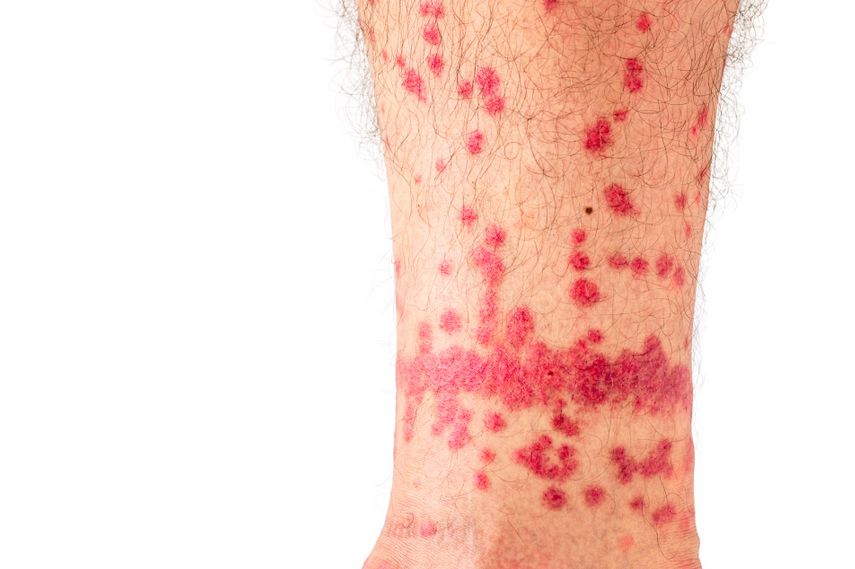
Flea bites are small red bumps that appear in clusters. They are small and often have little red halos around them.
They usually prefer animals but can also go for warm areas like the groin and armpits.
Symptoms: They are usually itchy and will leave red marks.
How to treat: Try not to scratch the area, keep it clean and use antiseptic creams.
Tick bites
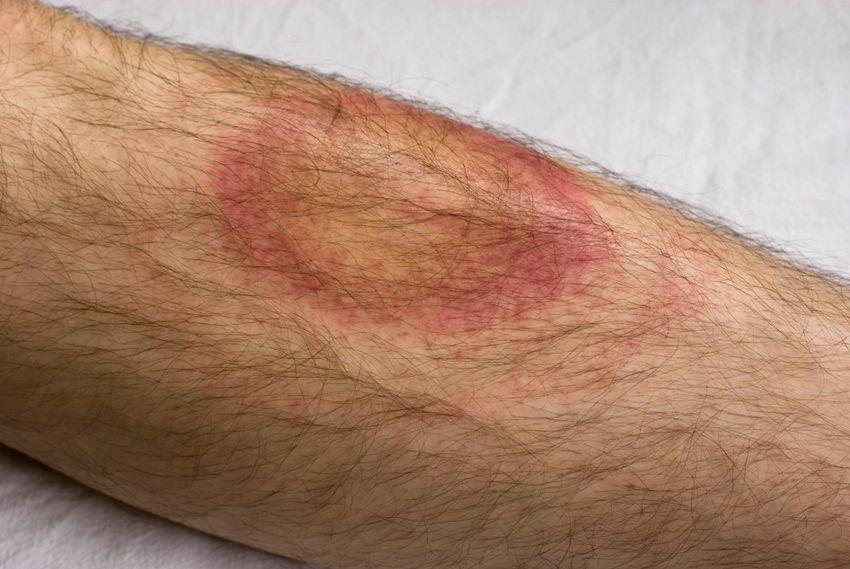
Ticks like to feed on your blood so it’s usually easy to find them as quite often they will still be attached to the area they have bitten.
They will usually leave a red spot but not all people will have this reaction.
Ticks like warm blood so they will look to feast on the warmer parts of the body like armpits, behind the knees and the groin.
Symptoms: If you have been bitten by a tick then it can usually be quite itchy.
The reaction you have will depend on the type of tick that decided to feast on you.
Lyme disease is one signal as well as other tick-borne illnesses include tularemia and anaplasmosis.
How to treat: Try not to itch the bite. If it gets uncomfortable you can use an ice pack or apply calamine lotion or antiseptic creams to stop the itching.
Spider bites
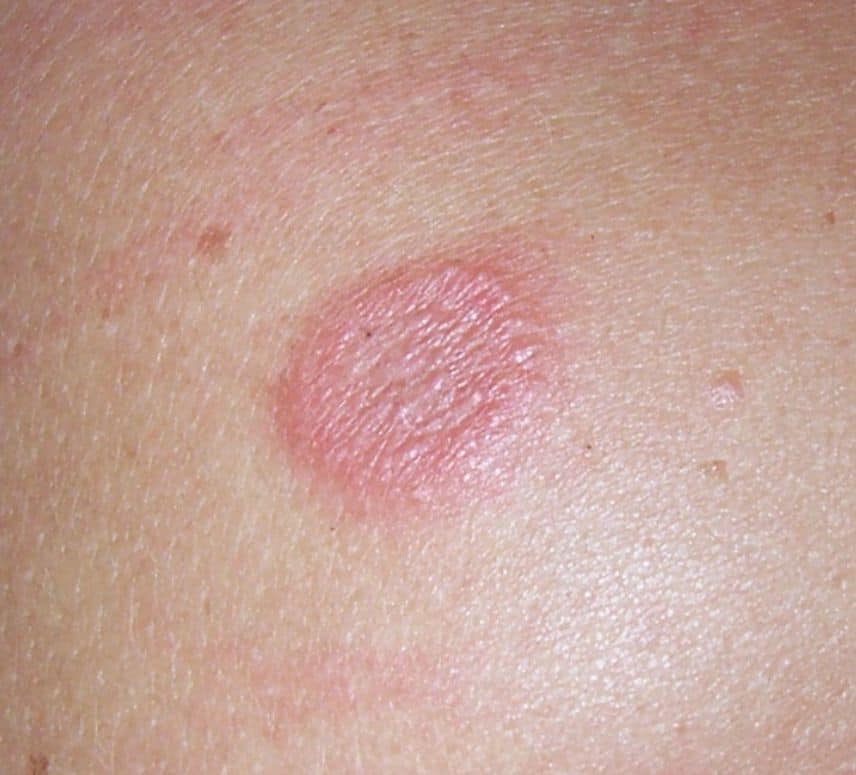
If you see a spider scurrying away or you have two tiny puncture wounds on your skin then it’s most likely a spider bite.
Most spiders only bite when they are provoked and their bites will usually leave your skin red and a bit swollen.
Symptoms: Mild pain is to be expected but if you have been bitten by a black widow or brown recluses then you could experience tremors and nausea.
If you think you’ve been bitten by one of these spiders then you should seek help from a professional.
How to treat: Using an ice pack will help the swelling and if you have been bit on your leg it’s a good idea to keep it elevated.
Fly bites
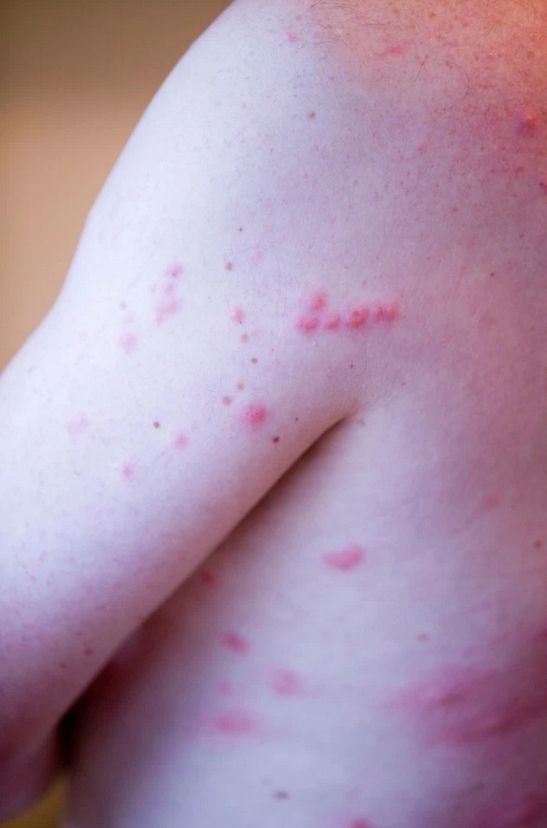
Fly bites are common if you spend a lot of time outside and even more so if you spend time around horses and they can be pretty painful.
Symptoms: They are often raised and will be a little bit itchy but more are innocuous.
How to treat: To help soothe the bite you can apply ice and keep the area clean.
Mosquito bites
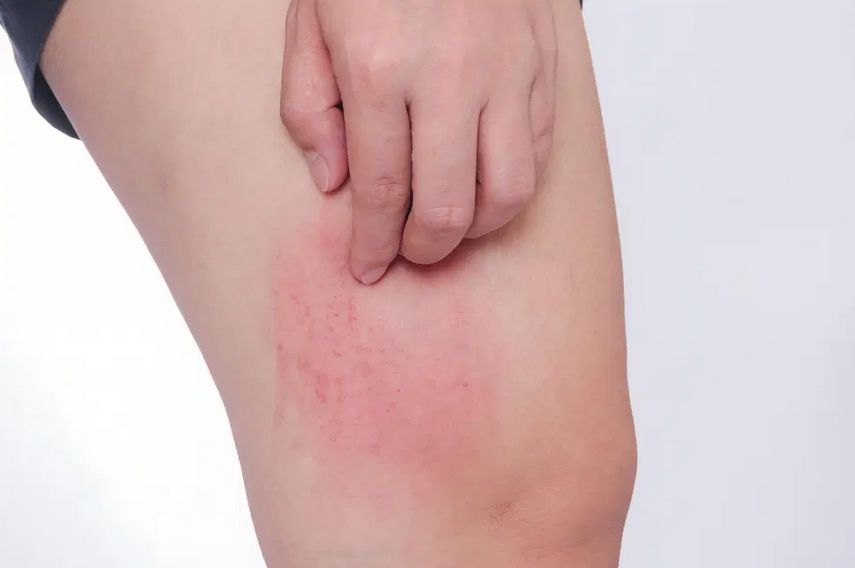
Mosquitoes like to go for the ankles, knees and the neck. Their bites form bumps that usually go red.
Symptoms: You won’t feel much pain at first but these bites can become very itchy.
If you’re experiencing cold or flu symptoms then you may have contracted a disease as some mosquitoes carry Zika and West Nile viruses
How to treat: You can take an over the counter antihistamines and make sure you keep the area clean.
Bee sting

Bee stings can be fatal to some and there will usually be a white spot where they have stung.
Sometimes the barbed stinger is left attached and you need to pull this out.
Symptoms: You will have moderate pain which should go away within a few hours.
How to treat: You can use a cold compress to quell the swelling but if you think you’re having an allergic reaction then it’s best to go to A&E.
Bed bug bites
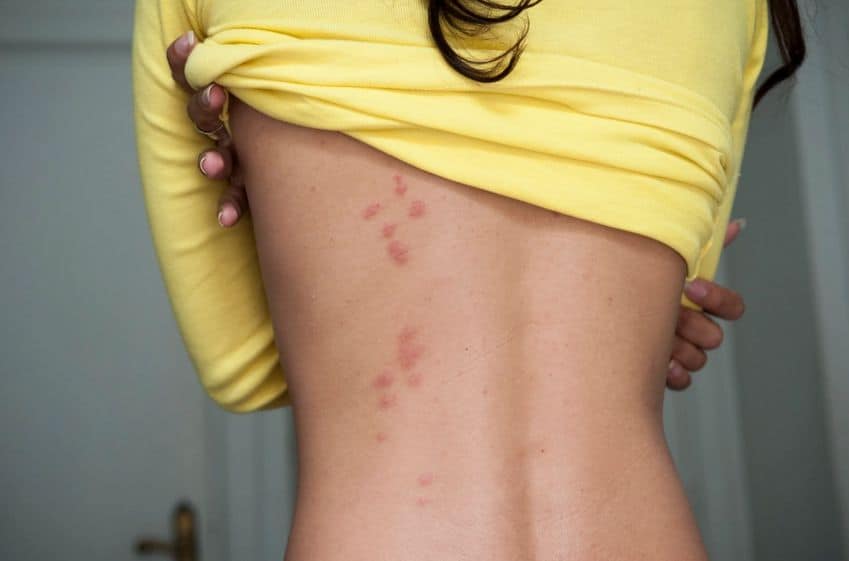
These can sometimes look like mosquito bites and appear as small, red, puffy lumps in a cluster of three or more.
They appear on skin that is exposed to your bed covers at night. Bed bugs often linger in your mattress in the corners.
Symptoms: The bites can become itchy and swollen but they don’t spread disease.
How to treat: First you need to get rid of the bed bugs from your home. To do this you need to make sure you wash your bedding often and vacuum any areas around the bed.
You can also scrub the mattress seams to remove their eggs.
You can use over the counter pain relief and antihistamines to stop the itching.
- Brief Anger Hampers Blood Vessel Function Leading to Increased Risk of Heart Disease and Stroke – New Study
- New Blood Test Pinpoints Future Stroke Risk – Study Identifies Inflammatory Molecules as Key Biomarker
- Enceladus: A Potential Haven for Extraterrestrial Life in its Hidden Ocean Depths
- New Experiment: Dark Matter Is Not As ‘DARK’ As All We Think
- Scientists in Fear of This New Predator From Red Sea Eating Native Species in Mediterranean
Ant bite or sting
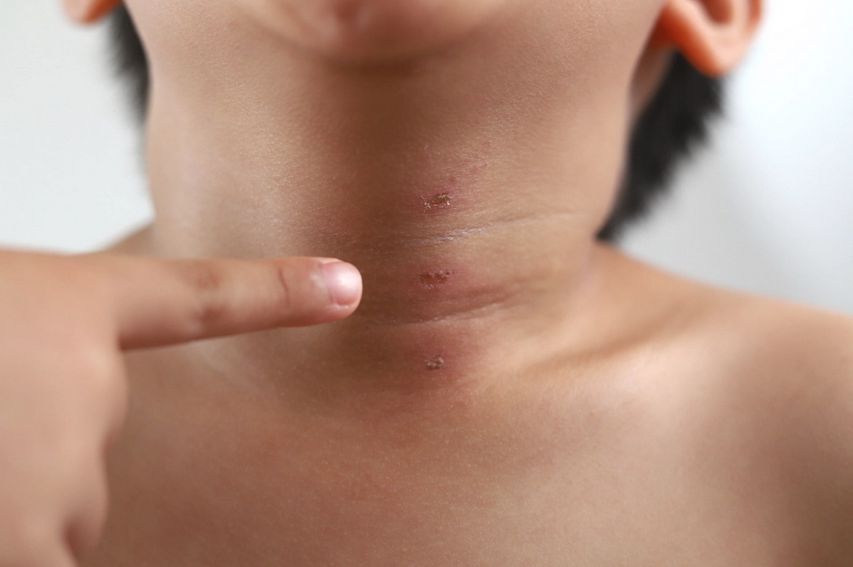
These can be a double whammy as some ants can bite and sting. Most will cause pimple-like spots.
Symptoms: If a fire ant has bitten you then it will be painful as they have strong venom, this can take weeks to go away.
How to treat: Ice the sting on and off and elevate the area. You can also take antihistamines.
Sand fly bites
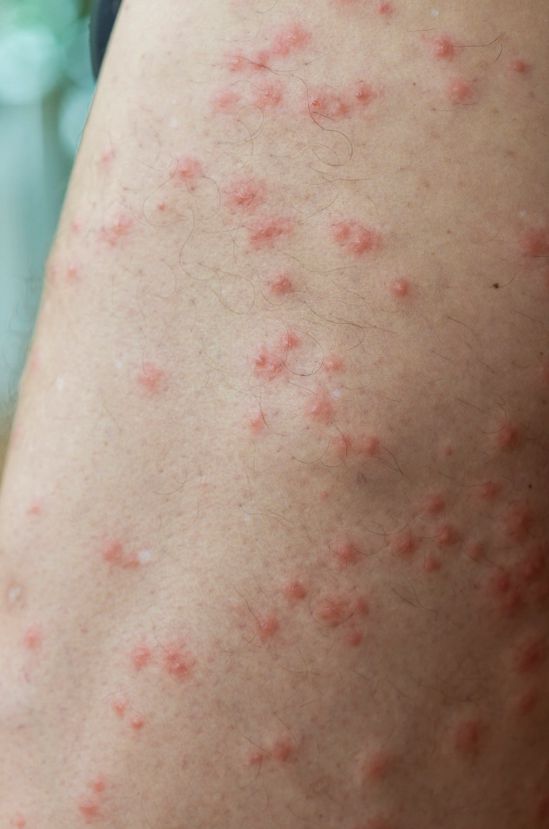
Sand fly bites can transmit parasite infections that cause skin lesions and ulcers.
They will appear in small red clusters and can also cause blisters.
Symptoms: They will be painful and itchy.
How to treat: Antihistamines usually help.
Chigger bites
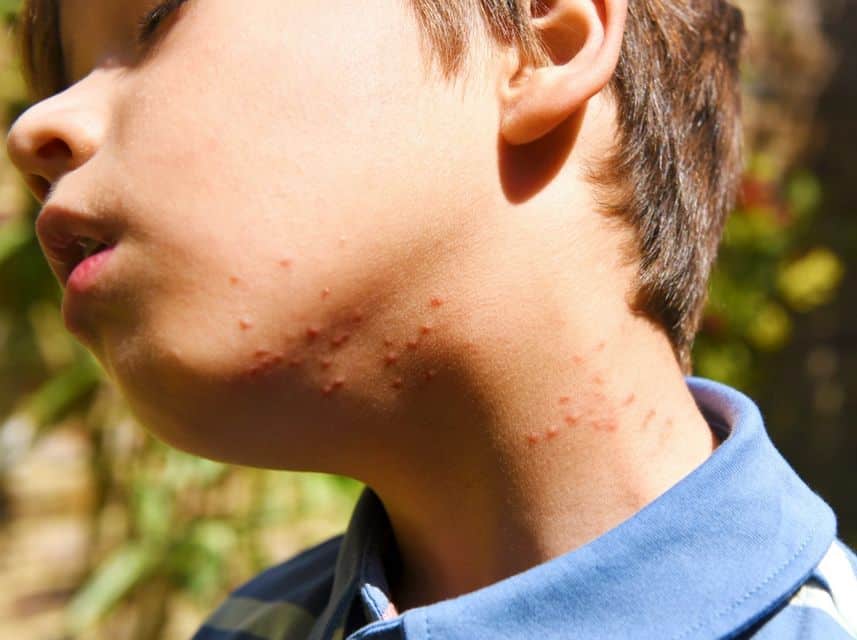
These bites are usually invisible to the naked eye and will create tiny little bumps.
Symptoms: You will feel severe discomfort but the mites don’t spread disease and do not burrow in your skin.
- Brief Anger Hampers Blood Vessel Function Leading to Increased Risk of Heart Disease and Stroke – New Study
- New Blood Test Pinpoints Future Stroke Risk – Study Identifies Inflammatory Molecules as Key Biomarker
- Enceladus: A Potential Haven for Extraterrestrial Life in its Hidden Ocean Depths
- New Experiment: Dark Matter Is Not As ‘DARK’ As All We Think
- Scientists in Fear of This New Predator From Red Sea Eating Native Species in Mediterranean
How to treat: They usually get better without treatment but if you’re struggling you can use antiseptic creams or calamine lotion.
Image Credit: Getty
